Automated Reasoning checks, multi-agent collaboration, and Model Distillation build on the strong foundation of enterprise-grade capabilities available on Amazon Bedrock to help customers go from proof of concept to production-ready generative AI faster
AWS Strengthens Amazon Bedrock with Industry-First AI Safeguard, New Agent Capability, and Model Customization
Amazon.com, Inc.
Media Hotline
Amazon-pr@amazon.com
www.amazon.com/pr
At AWS re:Invent, Amazon Web Services, Inc. (AWS), an Amazon.com, Inc. company (NASDAQ: AMZN), today announced new capabilities for Amazon Bedrock, a fully managed service for building and scaling generative artificial intelligence (AI) applications with high-performing foundation models. Today’s announcements help customers prevent factual errors due to hallucinations, orchestrate multiple AI-powered agents for complex tasks, and create smaller, task-specific models that can perform similarly to a large model at a fraction of the cost and latency.
This press release features multimedia. View the full release here: https://www.businesswire.com/news/home/20241203470182/en/
- Automated Reasoning checks is the first and only generative AI safeguard that helps prevent factual errors due to model hallucinations, opening up new generative AI use cases that demand the highest levels of precision.
- Customers can use multi-agent collaboration to easily build and orchestrate multiple AI agents to solve problems together, expanding the ways customers can apply generative AI to address their most complex use cases.
- Model Distillation empowers customers to transfer specific knowledge from a large, highly capable model to a smaller, more efficient one that can be up to 500% faster and 75% less expensive to run.
- Tens of thousands of customers use Amazon Bedrock today, with Moody’s, PwC, and Robin AI among those leveraging these new capabilities to cost-effectively scale inference and push the limits of generative AI innovation.
“With a broad selection of models, leading capabilities that make it easier for developers to incorporate generative AI into their applications, and a commitment to security and privacy, Amazon Bedrock has become essential for customers who want to make generative AI a core part of their applications and businesses,” said Dr. Swami Sivasubramanian, vice president of AI and Data at AWS. “That is why we have seen Amazon Bedrock grow its customer base by 4.7x in the last year alone. Over time, as generative AI transforms more companies and customer experiences, inference will become a core part of every application. With the launch of these new capabilities, we are innovating on behalf of customers to solve some of the top challenges, like hallucinations and cost, that the entire industry is facing when moving generative AI applications to production.”
Automated Reasoning checks prevent factual errors due to hallucinations
While models continue to advance, even the most capable ones can hallucinate, providing incorrect or misleading responses. Hallucinations remain a fundamental challenge across the industry, limiting the trust companies can place in generative AI. This is especially true for regulated industries, like healthcare, financial services, and government agencies, where accuracy is critical, and organizations need to audit to make sure models are responding appropriately. Automated Reasoning checks is the first and only generative AI safeguard that helps prevent factual errors due to hallucinations using logically accurate and verifiable reasoning. By increasing the trust that customers can place in model responses, Automated Reasoning checks opens generative AI up to new use cases where accuracy is paramount.
Automated reasoning is a branch of AI that uses math to prove something is correct. It excels when dealing with problems where users need precise answers to a topic that is large and complex, and that has a well-defined set of rules or collection of knowledge about the subject. AWS has a team of world-class automated reasoning experts who have used this technology over the last decade to improve experiences across AWS, like proving that permissions and access controls are implemented correctly to enhance security or checking millions of scenarios across Amazon Simple Storage Service (S3) before deployment to ensure availability and durability remain protected.
Amazon Bedrock Guardrails makes it easy for customers to apply safety and responsible AI checks to generative AI applications, allowing customers to guide models to only talk about relevant topics. Accessible through Amazon Bedrock Guardrails, Automated Reasoning checks now allows Amazon Bedrock to validate factual responses for accuracy, produce auditable outputs, and show customers exactly why a model arrived at an outcome. This increases transparency and ensures that model responses are in line with a customer’s rules and policies. For example, a health insurance provider that needs to ensure its generative AI-powered customer service application responds correctly to customer questions about policies could benefit from Automated Reasoning checks. To apply them, the provider uploads their policy information, and Amazon Bedrock automatically develops the necessary rules, guiding the customers to iteratively test it to ensure the model is tuned to the right response—no automated reasoning expertise required. The insurance provider then applies the check, and as the model generates responses, Amazon Bedrock verifies them. If a response is incorrect, like getting the deductible wrong or flagging a procedure that is not covered, Amazon Bedrock suggests the correct response using information from the Automated Reasoning check.
PwC, a global professional services firm, is using Automated Reasoning checks to create AI assistants and agents that are highly accurate, trustworthy, and useful to drive its clients’ businesses to the leading edge. PwC incorporates Automated Reasoning checks into industry-specific solutions for clients in financial services, healthcare, and life sciences, including applications that verify AI-generated compliance content with Food and Drug Administration (FDA) and other regulatory standards. Internally, PwC employs Automated Reasoning checks to ensure that responses generated by generative AI assistants and agents are accurate and compliant with internal policies.
Easily build and coordinate multiple agents to execute complex workflows
As companies make generative AI a core part of their applications, they want to do more than just summarize content and power chat experiences. They also want their applications to take action. AI-powered agents can help customers’ applications accomplish these actions by using a model’s reasoning capabilities to break down a task, like helping with an order return or analyzing customer retention data, into a series of steps that the model can execute. Amazon Bedrock Agents makes it easy for customers to build these agents to work across a company’s systems and data sources. While a single agent can be useful, more complex tasks, like performing financial analysis across hundreds or thousands of different variables, may require a large number of agents with their own specializations. However, creating a system that can coordinate multiple agents, share context across them, and dynamically route different tasks to the right agent requires specialized tools and generative AI expertise that many companies do not have available. That is why AWS is expanding Amazon Bedrock Agents to support multi-agent collaboration, empowering customers to easily build and coordinate specialized agents to execute complex workflows.
Using multi-agent collaboration in Amazon Bedrock, customers can get more accurate results by creating and assigning specialized agents for specific steps of a project and accelerate tasks by orchestrating multiple agents working in parallel. For example, a financial institution could use Amazon Bedrock Agents to help carry out due diligence on a company before investing. First, the customer uses Amazon Bedrock Agents to create a series of specialized agents focused on specific tasks, like analyzing global economic factors, assessing industry trends, and reviewing the company’s historical financials. After they have created all of their specialized agents, they create a supervisor agent to manage the project. The supervisor then handles the coordination, like breaking up and routing tasks to the right agents, giving specific agents access to the information they need to complete their work, and determining what actions can be processed in parallel and which need details from other tasks before the agent can move forward. Once all of the specialized agents complete their inputs, the supervisor agent pulls the information together, synthesizes the results, and develops an overall risk profile.
Moody’s, a global leader in credit ratings and financial insights, has chosen Amazon Bedrock multi-agent collaboration to enhance its risk analysis workflows. Moody's is leveraging Amazon Bedrock to create agents that are each assigned a specific task and given access to tailored datasets to perform its role. For example, one agent might analyze macroeconomic trends, while another evaluates company-specific risks using proprietary financial data, and a third benchmarks competitive positioning. These agents collaborate seamlessly, synthesizing their outputs into precise, actionable insights. This innovative approach enables Moody’s to deliver faster, more accurate risk assessments, solidifying its reputation as a trusted authority in financial decision-making.
Create smaller, faster, more cost-effective models with Model Distillation
Customers today are experimenting with a wide variety of models to find the one best suited to the unique needs of their business. However, even with all the models available today, it is challenging to find one with the right mix of specific knowledge, cost, and latency. Larger models are more knowledgeable, but they take longer to respond and cost more, while small models are faster and cheaper to run, but are not as capable. Model distillation is a technique that transfers the knowledge from a large model to a small model, while retaining the small model’s performance characteristics. However, doing this requires specialized machine learning (ML) expertise to work with training data, manually fine-tune the model, and adjust model weights without compromising the performance characteristics that led the customer to choose the smaller model in the first place. With Amazon Bedrock Model Distillation, any customer can now distill their own model that can be up to 500% faster and 75% less expensive to run than original models, with less than 2% accuracy loss for use cases like retrieval augmented generation (RAG). Now, customers can optimize to achieve the best combination of capabilities, accuracy, latency, and cost for their use case—no ML expertise required.
With Amazon Bedrock Model Distillation, customers simply select the best model for a given use case and a smaller model from the same model family that delivers the latency their application requires at the right cost. After the customer provides sample prompts, Amazon Bedrock will do all the work to generate responses and fine-tune the smaller model, and it can even create more sample data, if needed, to complete the distillation process. This gives customers a model with the relevant knowledge and accuracy of the large model, but the speed and cost of the smaller model, making it ideal for production use cases, like real-time chat interactions. Model Distillation works with models from Anthropic, Meta, and the newly announced Amazon Nova Models.
Robin AI, which provides an AI-powered assistant that helps make complex legal processes quicker, cheaper, and more accessible, is using Model Distillation to help power high-quality legal Q&A across millions of contract clauses. Model Distillation helps Robin AI get the accuracy they need at a fraction of the cost, while faster responses provide a more fluid interaction between their customers and the assistant.
Automated Reasoning checks, multi-agent collaboration, and Model Distillation are all available in preview.
To learn more, visit:
- The AWS Blog for details on today’s announcements: Automated Reasoning checks, multi-agent collaboration, and Model Distillation.
- The Amazon Bedrock page to learn more about the capabilities.
- The Amazon Bedrock customer page to learn how companies are using Amazon Bedrock.
- The AWS re:Invent page for more details on everything happening at AWS re:Invent.
About Amazon Web Services
Since 2006, Amazon Web Services has been the world’s most comprehensive and broadly adopted cloud. AWS has been continually expanding its services to support virtually any workload, and it now has more than 240 fully featured services for compute, storage, databases, networking, analytics, machine learning and artificial intelligence (AI), Internet of Things (IoT), mobile, security, hybrid, media, and application development, deployment, and management from 108 Availability Zones within 34 geographic regions, with announced plans for 18 more Availability Zones and six more AWS Regions in Mexico, New Zealand, the Kingdom of Saudi Arabia, Taiwan, Thailand, and the AWS European Sovereign Cloud. Millions of customers—including the fastest-growing startups, largest enterprises, and leading government agencies—trust AWS to power their infrastructure, become more agile, and lower costs. To learn more about AWS, visit aws.amazon.com.
About Amazon
Amazon is guided by four principles: customer obsession rather than competitor focus, passion for invention, commitment to operational excellence, and long-term thinking. Amazon strives to be Earth’s Most Customer-Centric Company, Earth’s Best Employer, and Earth’s Safest Place to Work. Customer reviews, 1-Click shopping, personalized recommendations, Prime, Fulfillment by Amazon, AWS, Kindle Direct Publishing, Kindle, Career Choice, Fire tablets, Fire TV, Amazon Echo, Alexa, Just Walk Out technology, Amazon Studios, and The Climate Pledge are some of the things pioneered by Amazon. For more information, visit amazon.com/about and follow @AmazonNews.
View source version on businesswire.com: https://www.businesswire.com/news/home/20241203470182/en/
 Business wire
Business wire 


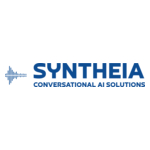
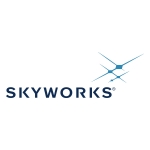
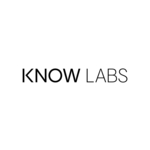
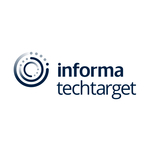

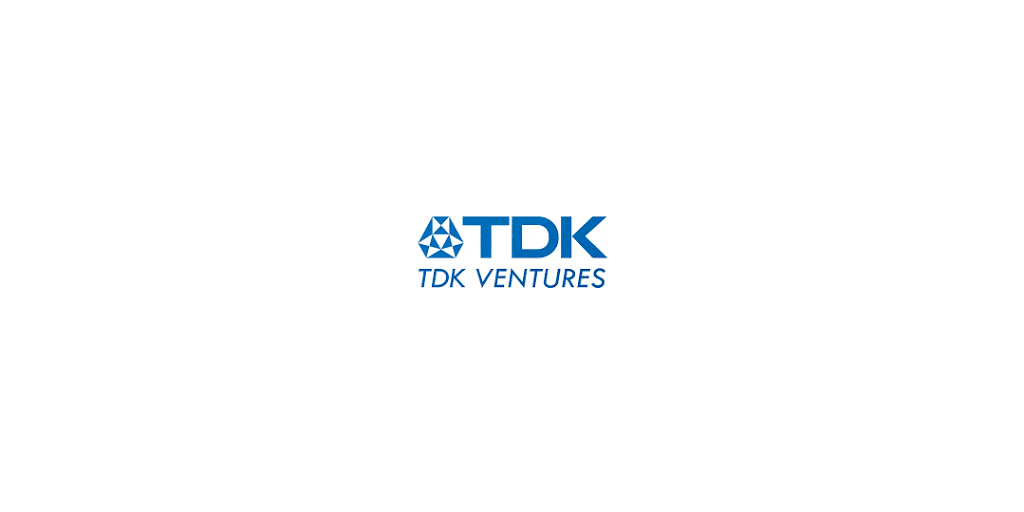



Add Comment